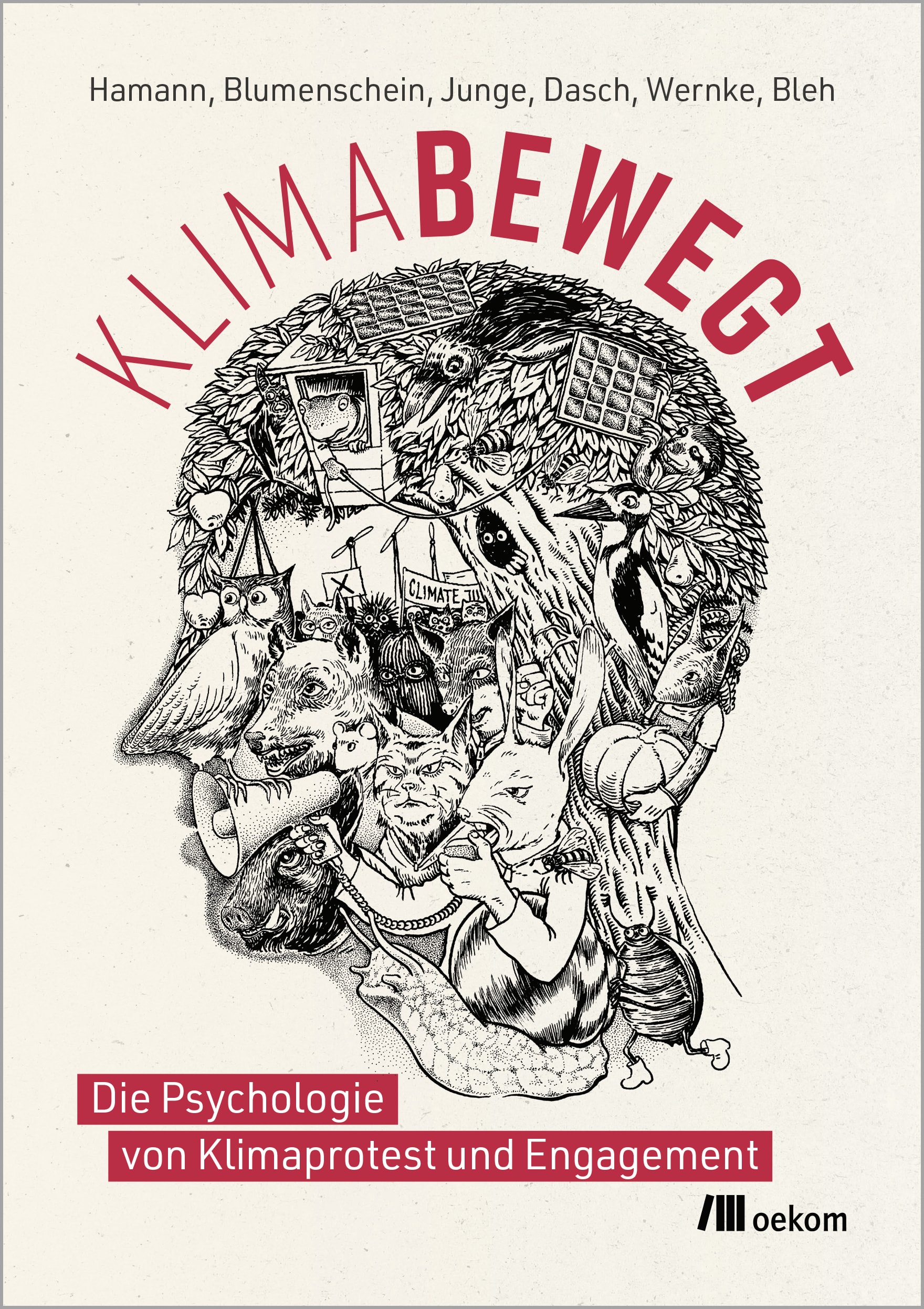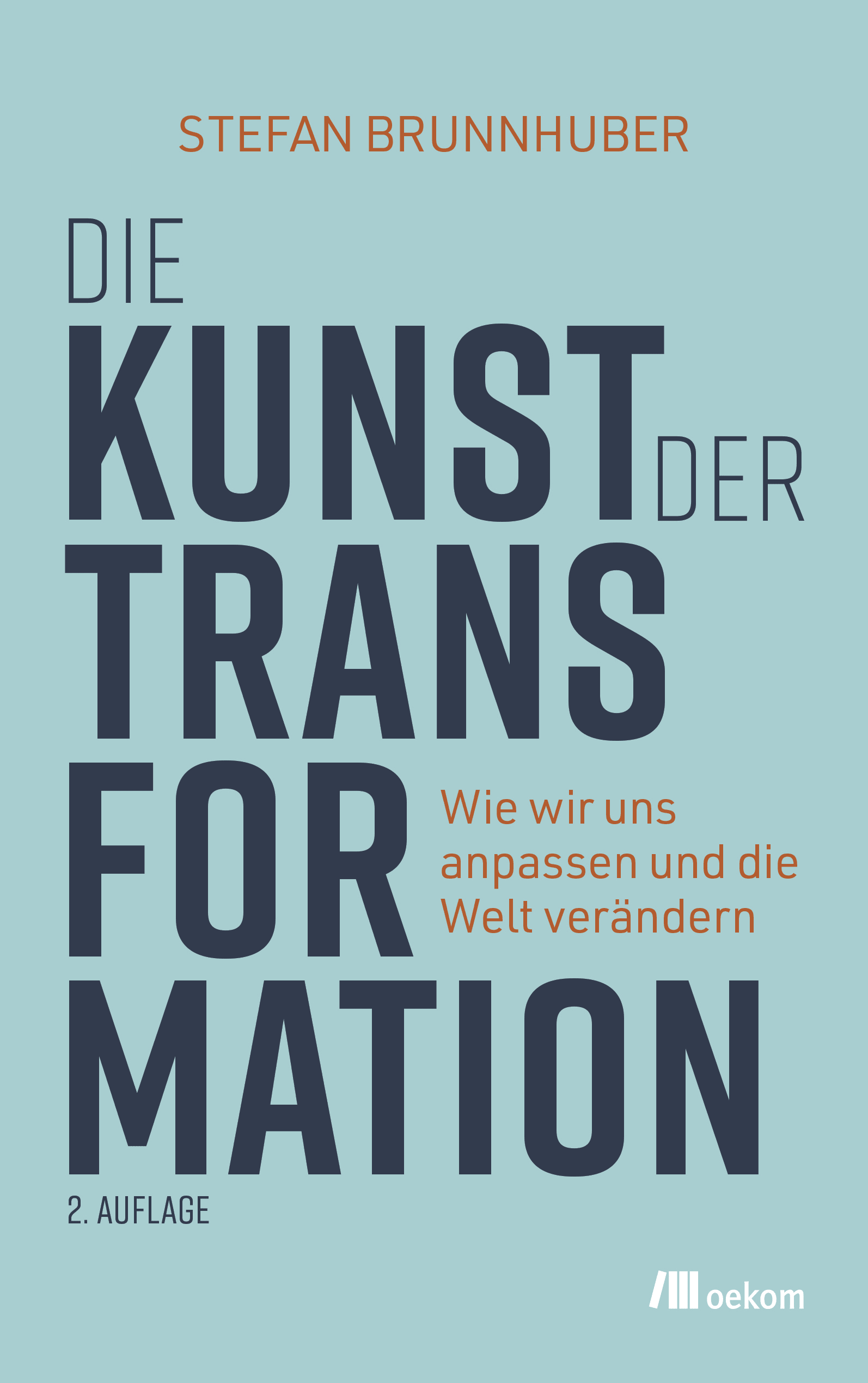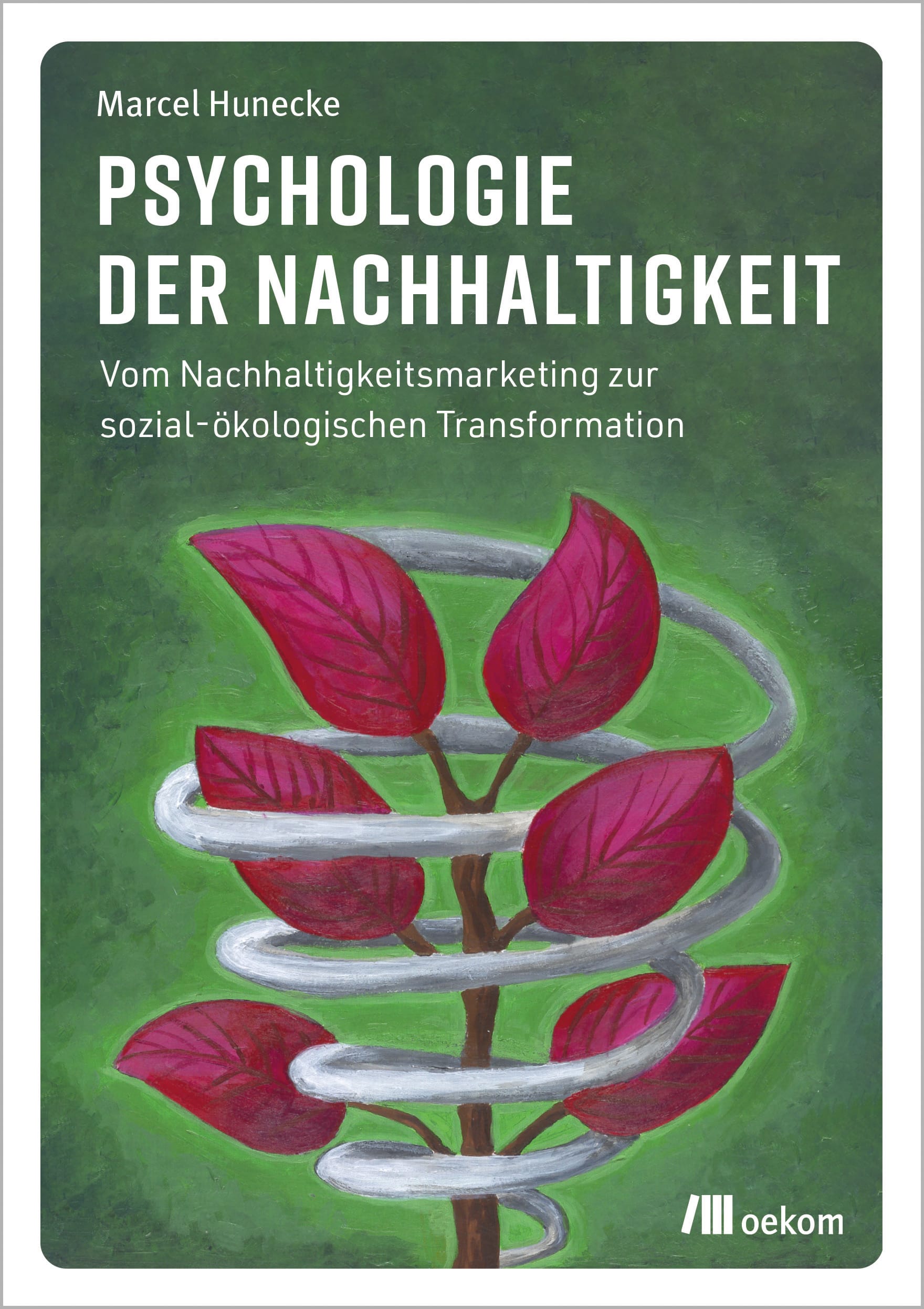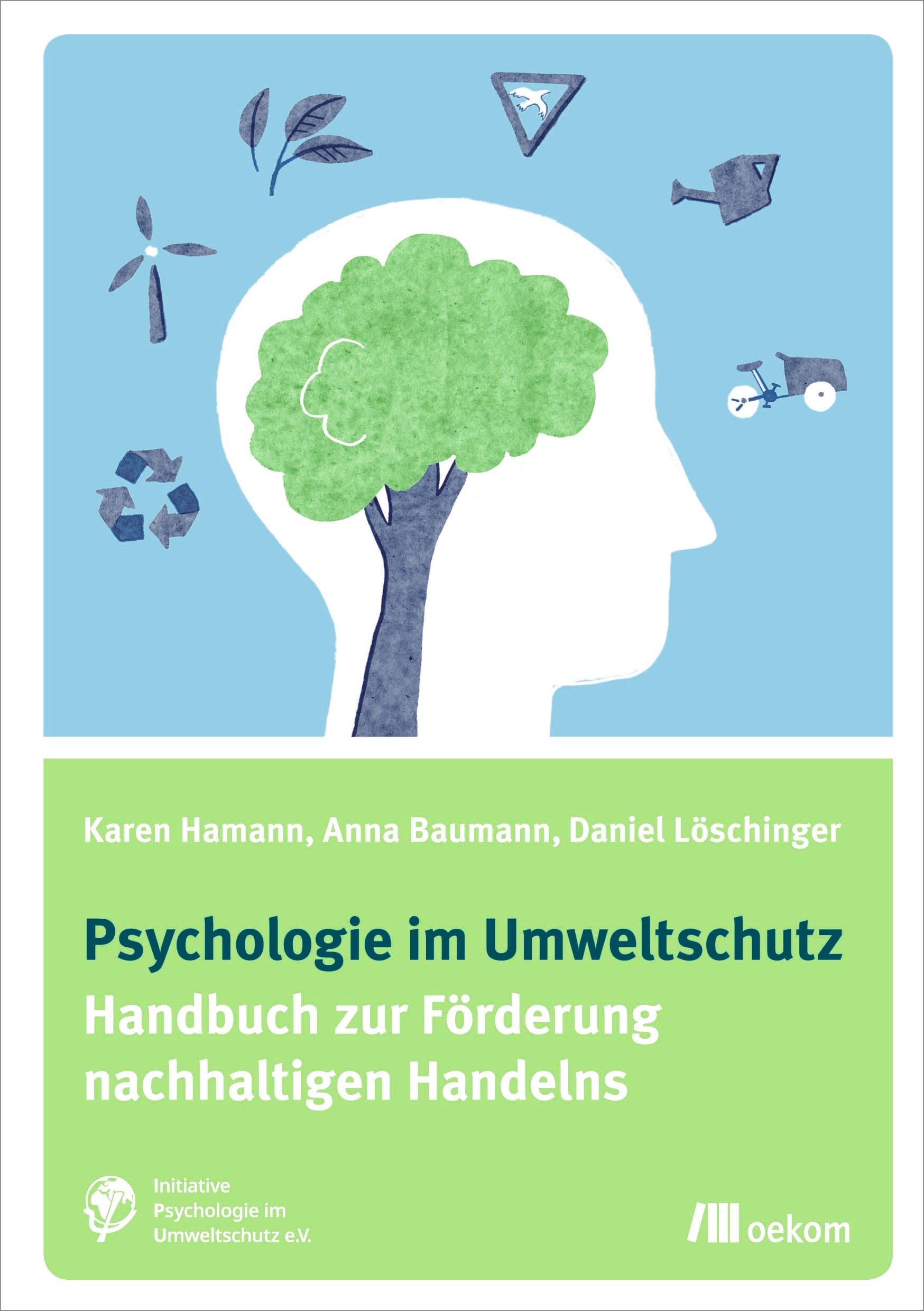The climate crisis can leave deep marks on our psyche – and raises important questions: How does climate change affect our mental health? What exactly does “climate fear” mean? And how can we transform ourselves personally and society to actively contribute to the solution? We present our literature tips on these discourses in climate psychology and environmental psychology.
Like other scientific disciplines, psychology is now increasingly concerned with the climate crisis and its consequences. Various terms are increasingly finding their way into the psychological literature. Dark perspectives, such as the prospect of a world that is 3 degrees warmer, can leave emotional wounds as “climate anxiety” or “eco anxiety”. The phenomenon of “solastalgia” in turn describes the psychological effects of increasing environmental destruction and thus the loss of familiar living space.
At the same time, the focus in climate and environmental psychology – analogous to external, technological, economic and social transformation – is on the internal transformation of the individual and society. This process is considered a prerequisite for successfully dealing with the climate crisis and other ecological crises. And for this we need scientifically based explanations, analyzes and strategies.
So basically we are faced with two psychological issues: How does the climate crisis affect our psyche? And which psychological mechanisms can help to better combat the climate crisis? Our 8 literature tips in this article provide books worth reading on both aspects.
1. “Climate in your head”
Katharina van Bronswijk, spokeswoman for Psychologists and Psychotherapists for Future, has written “Climate in the Head,” a book for everyone who wants to deal with the psychological effects of the climate crisis. In it, the psychotherapist explains how we can understand and use our emotions such as fear, anger or hope to change ourselves and the world.
Order now (book: 22.00 euros | e-book: 17.99 euros)
Non-fiction | 2022 | 208 pages | by Katharina van Bronswijk
2. “The Art of the Excuse”
In “The Art of the Excuse,” psychologist Thomas Brudermann sheds light on the countless excuses we have ready when climate protection becomes too strenuous and uncomfortable. In an understandable and entertaining way, he shows how we can still take conscious action in the climate crisis. The book won the 2023 Eunice Foote Prize for Climate Communication.

Order now (book: 22.00 euros | e-book: 17.99 euros)
Non-fiction | 2022 | 256 pages | by Thomas Brudermann | Illustrated by Annechien Hoeben
Read more: 25 climate protection excuses – and their counterarguments
3. “Climate-changing”
How can systemic change be achieved in the wake of the climate crisis? How can people be motivated to do this? And how do committed activists strengthen themselves? Environmental psychologists from the Wandelwerk association explain all of this in a practical way in the book “Klimabewegt” based on current psychological research.

Order now (book: 25.00 euros | e-book free in open access)
Non-fiction | 2024 | 276 pages | by Karen Hamann, Paula Blumenschein, Eva Junge, Sophia Dasch, Alex Wernke, Julian Bleh
4. “The Art of Transformation”
In “The Art of Transformation,” Stefan Brunnhuber, a member of the Club of Rome, analyzes which deeply rooted (social) psychological barriers have so far prevented a sustainable post-growth society. With clear insights and new solutions, the psychiatrist and economist shows how we as a society can make urgently needed changes to meet global challenges.

Order now (book: 26.00 euros | e-book: 20.99 euros)
Non-fiction | 2023 | 318 pages | by Stefan Brunnhuber
5. “Psychology of Sustainability”
In “Psychology of Sustainability,” Marcel Hunecke traces the internal transformations that are necessary to enable the social-ecological change in our consumer experience society. By focusing on six psychological resources for sustainable lifestyles, he shows how mindfulness, enjoyment and solidarity can not only increase individual well-being, but also pave the way to a sustainable future.

Order now (book: 29.00 euros | e-book: 22.99 euros)
Non-fiction | 2022 | 272 pages | by Marcel Hunecke
6. “Psychology in Environmental Protection”
The handbook “Psychology in Environmental Protection” by Karen Hamann, Anna Baumann and Daniel Löschinger opens the door to the psychological mechanisms behind sustainable action. With its own chapters on topics such as self-efficacy, social norms and emotions, it offers concrete key questions and everyday examples for direct application in environmental protection. For everyone who wants to make their environmental protection projects more effective – be it in education, urban gardening, environmental activism or working for environmental organizations.

Order now (book: 19.95 euros | e-book: free in open access)
Non-fiction | 2016 | 144 pages | by Karen Hamann, Anna Baumann, Daniel Löschinger
7. “We can change”
How can we actually bring about a transformation to a sustainable society? To answer this question, Felix Ekardt brings together the findings from numerous research areas in “We Can Change”. A compact and innovative analysis!

Order now (book: 15.00 euros | e-book: 11.99 euros)
Non-fiction | 2017 | 160 pages | by Felix Ekardt
8. “Talking about climate”
What psychological and communication strategy factors come into play when we discuss the climate crisis with others? How can we communicate facts and motivate people to take action? Christopher Schrader breaks this down in “Talking about climate” in a scientifically sound, structured and practical way. An important toolbox to combat Disinformation, PLURV and Co. arrive and become a catalyst for transformation.
Order now (book: 34.00 euros | free e-book in open access)
Non-fiction | 2022 | 416 pages | by Christoph Schrader, published by klimafakten.de.
More books on the topic
#naturaloekom: We live sustainability
 oekom publishing house is not only committed to sustainability in terms of content, but is also making progress in production and distribution with a voluntary commitment to sustainable publishing. Our books are produced in a climate-friendly manner and are mostly printed on recycled paper. You can read detailed information about how oekom is actively committed to greater sustainability in the oekom section of course.
oekom publishing house is not only committed to sustainability in terms of content, but is also making progress in production and distribution with a voluntary commitment to sustainable publishing. Our books are produced in a climate-friendly manner and are mostly printed on recycled paper. You can read detailed information about how oekom is actively committed to greater sustainability in the oekom section of course.




